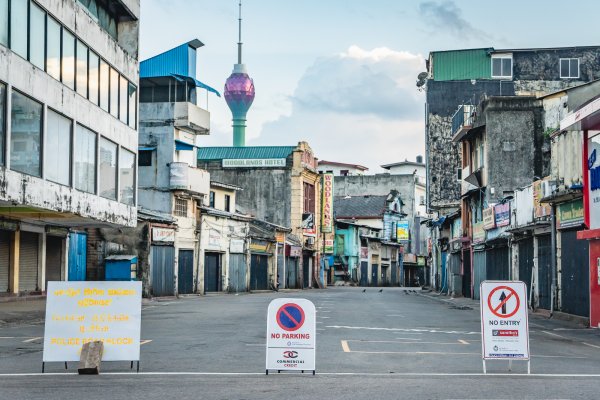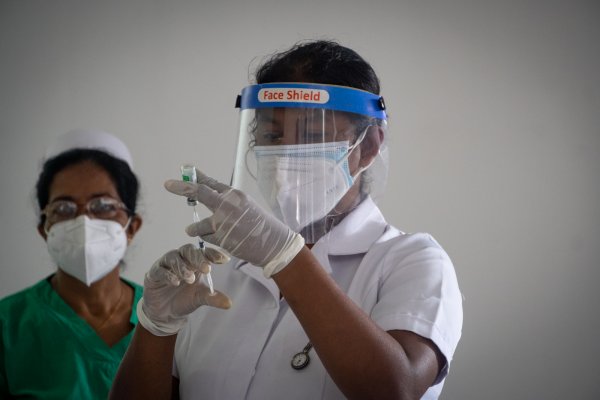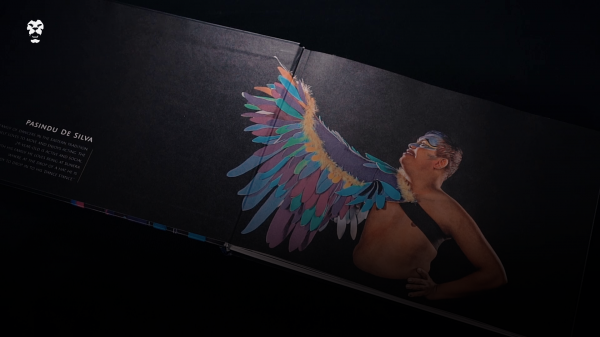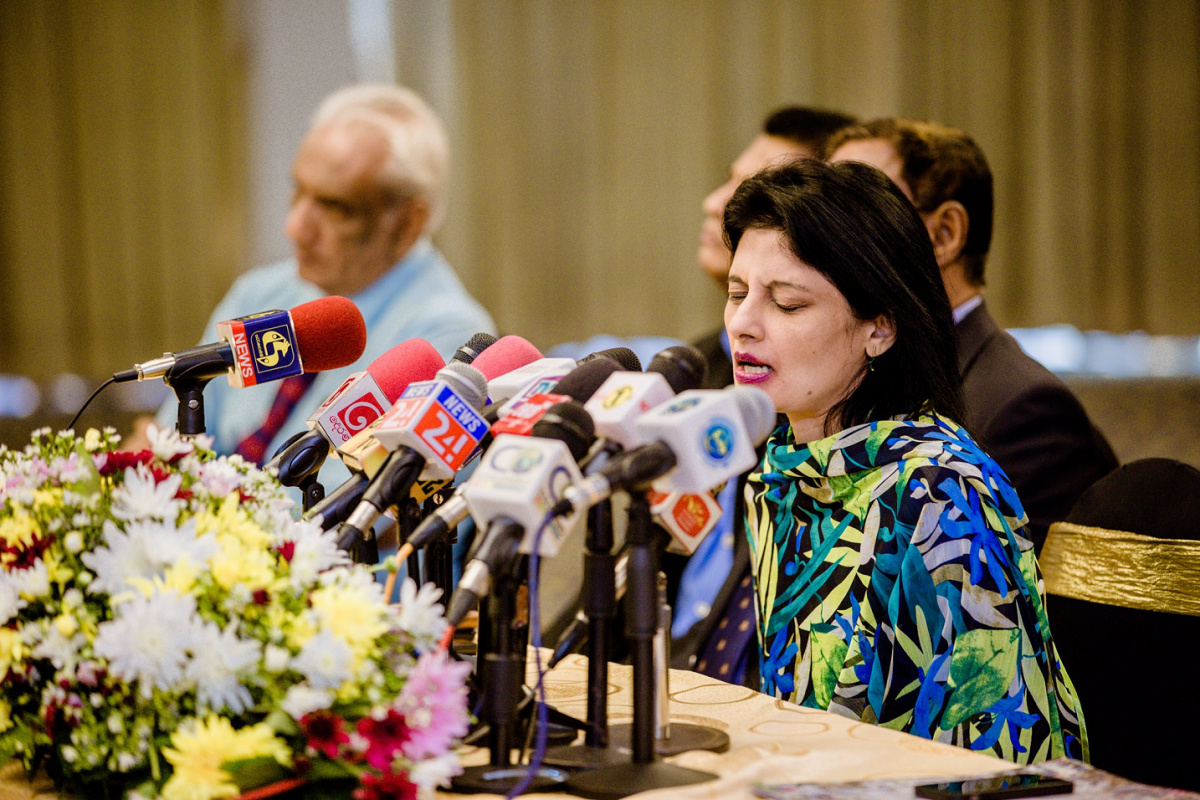
“Discipline should come from within. They ask, ‘If we can’t do it, then how can she do it?’ I’m Ashcharya. I’m unique. This is my capacity and these are my abilities. I have weaknesses. I keep them under my seat and find strength somehow.” — Ashcharya
Ashcharya Peiris Jayakody, Sri Lanka’s first visually-impaired fashion designer and founder of fashion brand Christiana Glory, made great strides on the global stage when she was included in the BBC 100 Women list for 2019. She was the only Sri Lankan to be included in the list which celebrates inspiring women from across the globe.
Ashcharya is a past pupil of Devi Balika Vidyalaya. Upon completion of her secondary education, she went on to obtain a Diploma in the English Language from Warwick University, Cambridge. Shortly after, she entered the banking sector, where she would remain until a near-fatal incident changed her life forever.
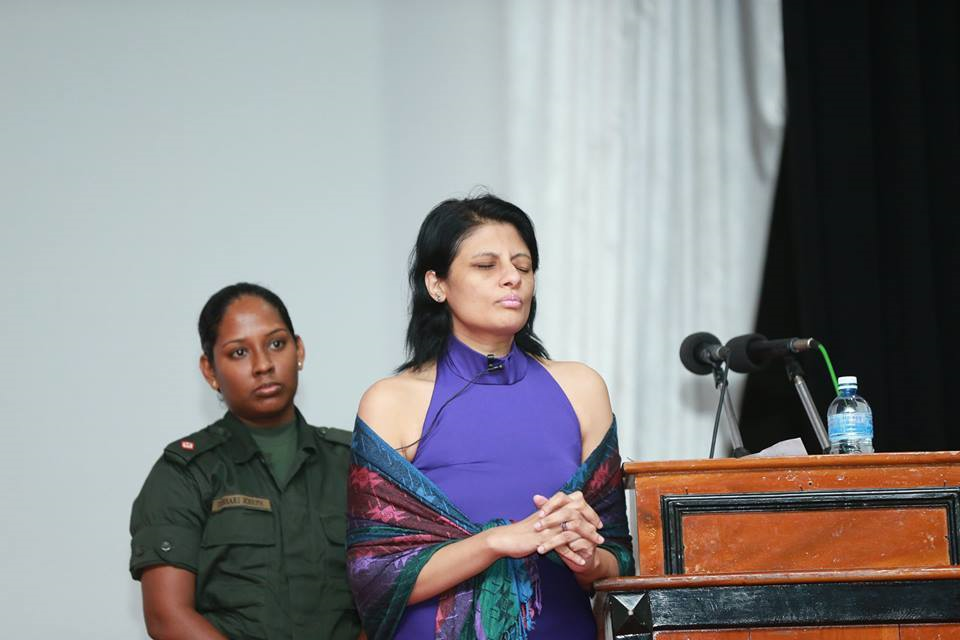
The Bombing
In the year 2000, Ashcharya was on her way home from work when a suicide bomber set off the explosion that would cost Ashcharya her sight. She was critically injured due to the incident, with multiple compound fractures. The prognosis was not positive, and Ashcharya’s mental health, too, began to flounder.
Her family, dejected by the prognosis and the state Ashcharya was in, did not have any hopes for her and abandoned her to her own devices, not willing to take on the responsibility of providing for her or supporting her.
“The issue is that parents think the reason they have children is so that they can provide them with luxury, support and wealth in the future. I don’t think so. Parents are caretakers, we don’t own the child’s life. No matter what, it’s our responsibility to support them,” Ashcharya said. “My parents thought I would achieve success in the future, marry a rich man, and look after them… But after I lost my vision, they gave up on me.”
The bank she worked for at the time supported her for a while, but then, eventually they stopped paying her salary. The bank’s union took over for a year and a half, providing her with a small stipend, but this was barely sufficient.
Ashcharya had had enough of the bank not accommodating her as a person with a disability, and offered her resignation. “They happily accepted it,” she said, not expressing any regrets.
Upon resigning from her job at the bank, she found herself amidst strangers.
“All the people I trusted, those who I thought would protect me, abandoned me. Do mothers do that? Yes, mothers do that.”
But even in such difficult circumstances, she found comfort in her faith.
“I feel like I’m stronger now. I owe no one but God, who protected me during my hard times. All my tears are gone. I cried to God, asking him to help me out when there was nobody in human form to do so.”
Transformational Experience
Ashcharya stated during an interview in 2019 that the incident is something she views as transformational rather than a tragedy. She opined that it helped her become stronger and more courageous, while also fundamentally changing her as a person.
“I must have done something deserving of merit in my past life,” she said, when asked about the bomb blast she fell victim to in 2000. It had challenged her past views of the world and life, and set her on a different path, simply as if it was meant to be.
Rather than mourning her losses, she strived harder and instead pursued her lifelong dream of becoming a fashion designer. By describing her designs to a seamstress, she was able to bring her creations to life.
She explained that sighted people often rely too much on technology and tools to produce their work, but she performs all calculations, drawings, and other formulations mentally. Her process lies solely in her brain.
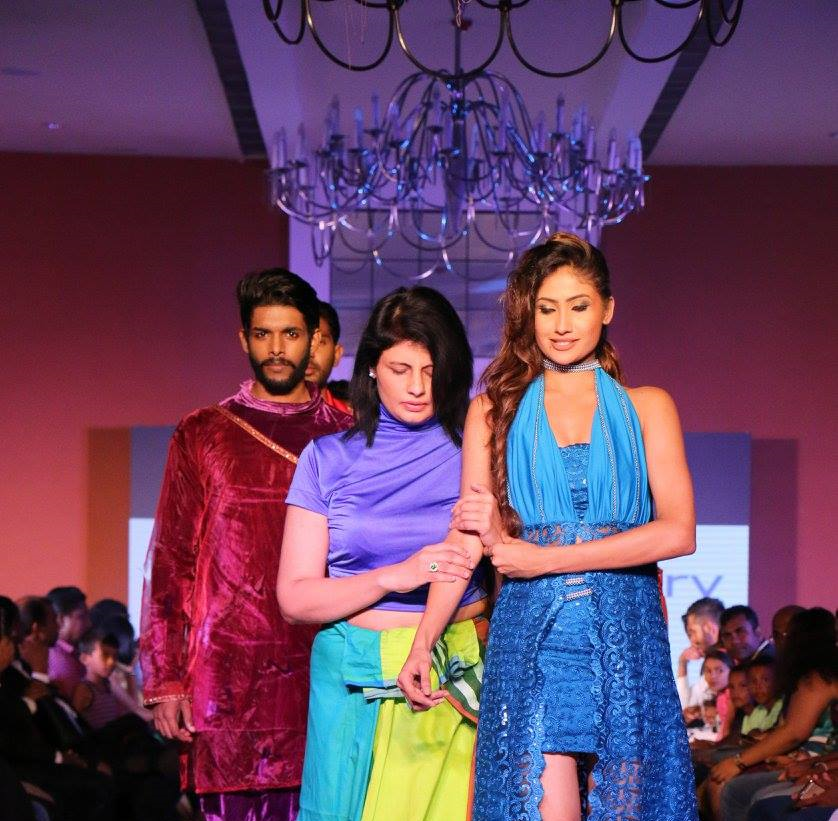
Visual Industry
In the years following the explosion, Ashcharya underwent complete professional retraining, with only her imagination to aid her in achieving her dream. Through meticulous planning and enormous effort, she successfully entered a fashion design competition in 2014.
This was just a year before she would go on to set up her brand, Christiana Glory, which provides custom-designed outfits for all body types and skin tones at an affordable price, catering to a wide market.
She ended up a finalist in the competition and thereon started her journey from a budding fashion designer to an icon in the industry. But her journey was not free of obstacles. A visually-impaired designer had previously been unheard of in Sri Lanka until Ashcharya entered the scene, and the show garnered a lot of attention from curious viewers.
“The other contestants would go shopping for material, but would not let me accompany them,” she said. Despite being underestimated, Ashcharya persevered, putting in many times the effort to get the results she wanted to succeed.
During a particular segment of the fashion show, the organisers assigned a handloom to her despite Ashcharya choosing ‘Sri Lankan drums’. They had declined her choice, and Ashcharya was forced to learn handloom in a month.
But simply completing the challenge was not what she was after. To win, she brought in a colour never seen before in Sri Lankan handloom: mauve. To do this, she called numerous people, but all except one refused to help her accomplish this.
Over the phone, Ashcharya provided the seamstress with all the instructions, blending two types of thread and a single colour base over which other colours run, to produce the handloom piece she had envisioned in her mind.
Her pieces also had unique embellishments. The jewellery was made of coconut shells, the handloom sarees had lotus flowers also made from coconut shells. Her unique pieces for the segment gained a lot of attention.
The extra effort finally paid off when she won a national award in the ‘10 Most Remarkable Women’ category in 2017.
Today, Ashcharya is also a member of the National Council For Persons With Disabilities and a motivational speaker who conducts sessions to motivate women to work on their dreams and to raise themselves to higher places using their passions as stepping stones.
Changing Perceptions
Ashcharya remains an inspiration to all, but in particular, she is a reminder that Sri Lanka is still struggling to dissolve the prominent mentality that shuns people with disabilities. People with disabilities are just as capable of greatness, and by not making inclusivity a priority, many workplaces are barring a crucial segment within our society.
“Sometimes, the National Council doesn’t have the legislative power to do the needful for the community,” Ashcharya lamented. “Do government offices have accessible bathrooms for people with disabilities? What about priority entrances? Education, insurance and medical care? When it comes to assistance, we’re last on the list.”
According to UN Women, an organisation that focuses on the elimination of discrimination against women and girls, empowerment of women, achieving equality, and more, approximately 1 billion persons are living with disabilities globally (15% of the total population), based on the latest available World Bank statistics.
One in five women have disabilities, and the prevalence of disability is higher among women than men (19.2% vs. 12%). Despite this, people with disabilities are disproportionately (and often inaccurately) represented, whether in media, policymaking processes, or the general employment arena.
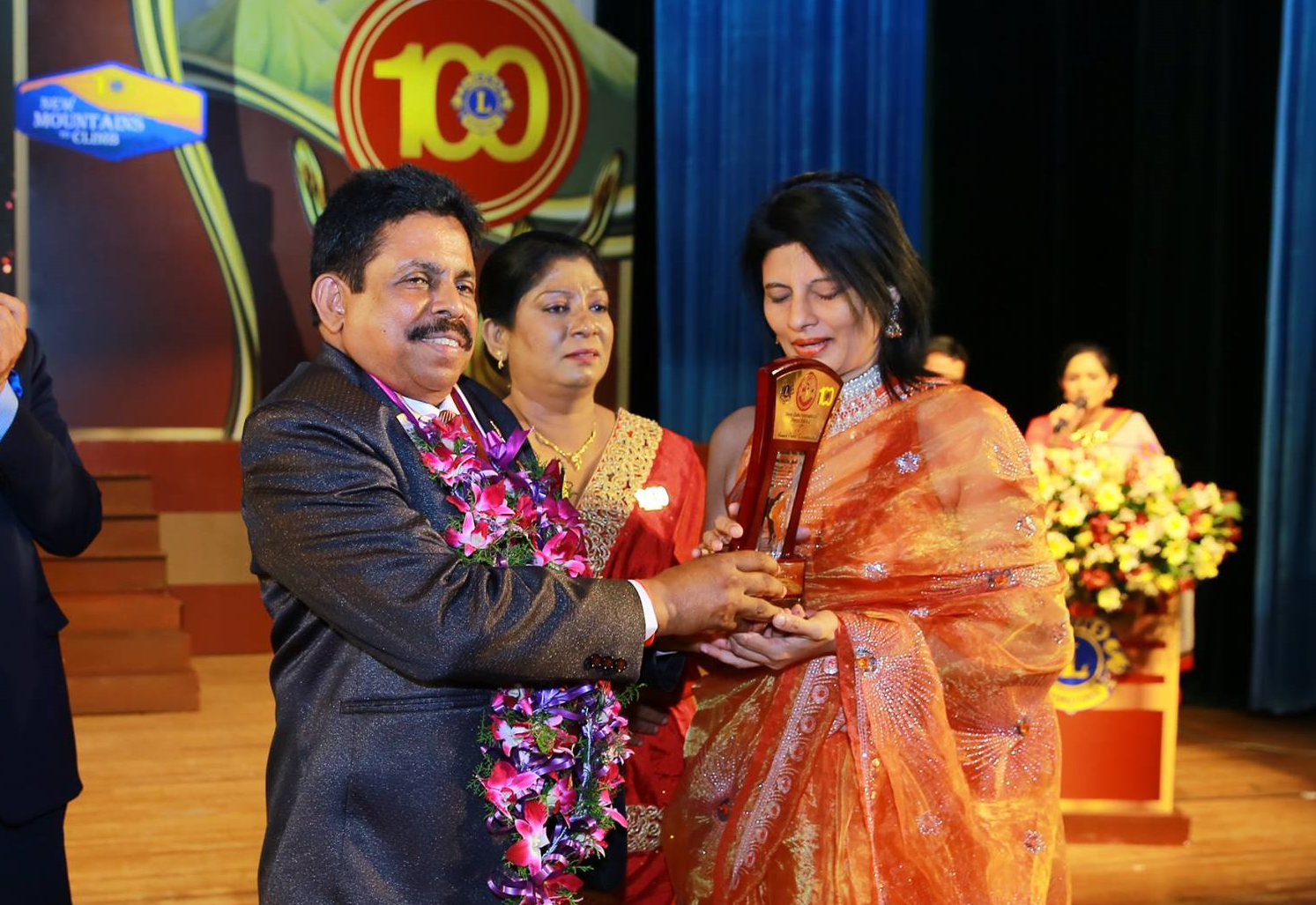
Women and girls, in particular, face intersecting levels of exclusion, violence, and other obstacles that prevent them from being able to partake in society as protected citizens.
By denying such a large segment of society their fundamental freedoms, and actively or passively excluding them from essential processes, we fail collectively.
This is one of the reasons why Ashcharya’s success is so important. If policies were implemented to ensure nondiscrimination and higher inclusivity for persons with disabilities, not only will we be empowering them, but we will set the nation on a course towards resilience.
“People in power should set an example. We don’t need sympathy, we need empathy. With our differently-abled bodies, we stand chest-to-chest, face-to-face with them,” she stated.
Making it to the BBC’s 100 Women 2019 list is just one of Ashcharya’s many great achievements. We can certainly expect more great things from her, for as she wisely stated: “Trials and tribulations in life are nothing but disguised blessings that empower you to achieve your goals.”

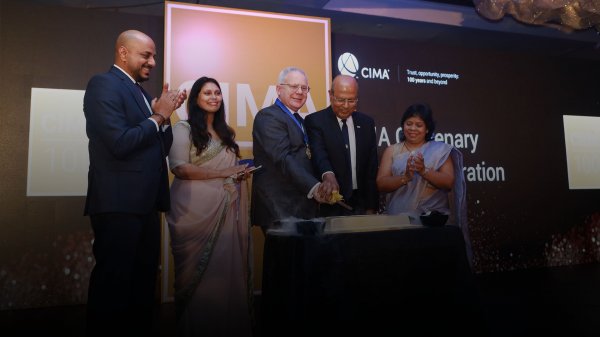
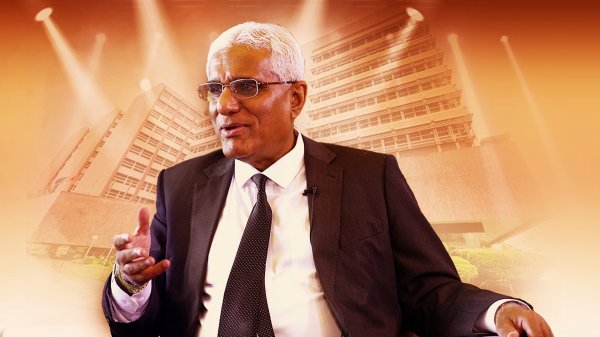
.jpg?w=600)
